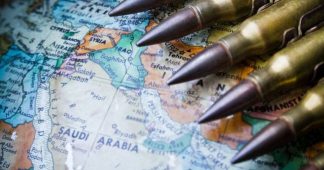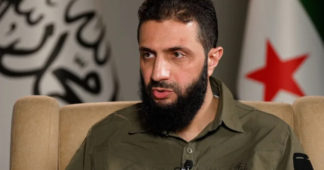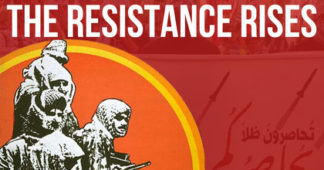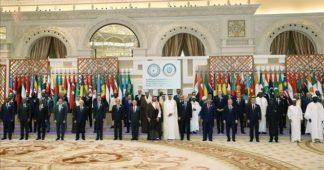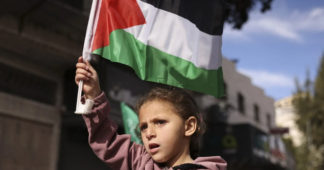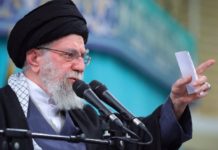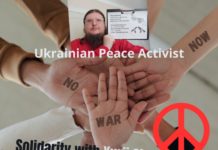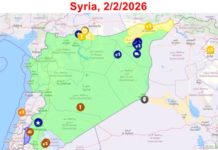By Marwan Emil Toubassi
Jun 14, 2025
In the midst of the ongoing brutal Israeli aggression against our Palestinian people—and the recent attack on Iran, which constituted a blatant violation of international law and norms—followed by Iranian responses that included salvos of missiles targeting Israeli sites and causing tangible and unprecedented damage in the history of the conflict with Israel (as I anticipated in my article yesterday), old/new files are being reopened within the Arab and Palestinian political mind. These concern the nature of the conflict, the positioning of enemies and allies, and the true identity of the existential threat.
It has become increasingly clear that the Iranian responses are not incidental or localized incidents, but rather part of a deeper shift in the rules of engagement and deterrence policies in the region. Yet more important than the battlefield developments is what is being revealed at the level of narrative and discourse. Once again, we are surprised to hear certain Palestinian and Arab voices attacking the Iranian project with a level of hostility exceeding even their critique of the occupation itself—some even blame Iran for the rise of the Zionist project!
We are not required to sanctify the Iranian project, nor to align with it without scrutiny, criticism, or disagreement. Iran, like Turkey with its dreams of reviving Ottoman ambitions, has the right to pursue its own interests—including developing its nuclear capabilities and advancing its regional vision. Likewise, we Arabs should have had our own independent, progressive Arab projects—or a unified Arab national project—which the West never permitted to flourish. It assassinated those sincere leaders who tried.
The grave mistake—indeed, a political sin—is to portray Iran as an existential threat while exonerating the Zionist project or normalizing relations with it under the justification of “realism” or an alliance against political Islam. This, despite our well-known disagreements with the global Muslim Brotherhood movement, which itself has historically served as a tool for Western colonial interests—particularly during and after the so-called ill-fated Arab Spring, whose consequences we Palestinians, along with other Arab peoples, continue to suffer from today.
From a purely national standpoint, we must re-anchor the compass. The Zionist project is the only one in the region born and sustained on a foundation of settler-colonialism—through genocide, forced displacement, and the dismemberment of societies and destruction of national states, regardless of these states’ failings or lack of democracy. It is the only project that continues to burn Gaza, invade Jenin, Nablus, Tubas, Bethlehem, and Hebron, destroy our refugee camps, Judaize Jerusalem, and expand settler-colonialism. It carries out daily killings, enforces apartheid, and legislates Jewish ethno-supremacy against our people inside historic Palestine, all while working to eliminate everything Palestinian, Arab, or resistant to its racist ideology and to the ferocious hegemonic mindset of the United States—a country with a long track record of crimes against peoples worldwide.
Iran, on the other hand—regardless of our agreements or disagreements with it in the context of pluralistic thought and opinion—has not occupied Palestinian land, has not built settlements atop our destroyed villages, has not committed the Nakba or ethnic cleansing, and has not provided political or diplomatic cover for Israeli crimes, as so many major and minor powers claiming neutrality and democracy have done.
The Right to Criticize Iran—from Which Position?
It is the right of peoples to raise objections to the regional policies of any state, including Iran and its doctrine of “Guardianship of the Jurist” (Wilayat al-Faqih), which it has tried to export to other Arab societies—a practice that deserves critique and reevaluation. But such criticism should emerge from an independent national position—not from alignment with a recycled Zionist-Western discourse now being promoted among us.
The problem is not the act of criticizing Iran itself—but the nature, context, and objective of such criticism. When this criticism turns into a justification for rapprochement with Israel—the very embodiment of a settler-colonial enterprise seeking “Greater Israel” based on Zionist, Talmudic, and biblical myths—or a rallying point against the national Palestinian vision, or a sectarian mobilization that ignites intra-Arab conflicts, then it is no longer legitimate or patriotic. Rather, it becomes an alignment with the global Zionist-imperial hegemonic camp in all its forms.
What has enabled the rise of regional non-Arab projects in the first place is the absence of a renaissance-driven Arab national project. The Arab political arena has been stripped of any strategic horizon due to regimes that produced only subservience, surrender, corruption, and dictatorship. These regimes have chosen to ally with the American vision for the region, which seeks to enshrine “Greater Israel” as the central political, economic, and military power in a re-engineered “New Middle East” serving Western interests and subjugating the region’s peoples under illusions of prosperity, economic solutions, and the false promises of a so-called “Abrahamic religion.”
Some regimes have aligned with sectarian fragmentation projects and become tools—at various stages—for undermining resistance ideologies and movements. This includes their repression of progressive Arab forces that historically stood in solidarity with us Palestinians, represented through the broad-based resistance framework of the Palestine Liberation Organization (PLO). Some regimes even deepened the internal Palestinian rift, and reached a point of trading normalization with the occupation in exchange for American protection, handing over billions as tribute recently demanded again by Trump.
Rather than establishing an independent regional balance to confront both the Zionist and Western colonial projects, the Arab geopolitical space has been fragmented into rival blocs with no unifying liberation project. Some now see Iran as the main enemy instead of the natural enemy, Israel—racing to normalize ties with Tel Aviv under American instructions.
The Struggle Against Zionism Accepts No Delusions
Attempts to paint Iran as the primary threat and to demonize all who support the Palestinian resistance in its many forms—political, diplomatic, cultural—as well as the wider Arab emancipatory identity, are nothing but efforts to reshape the collective Arab consciousness into accepting submission and surrender. This is a discourse that appeals to sectarian instincts and false fears, while ignoring the historical and geographical truths: Palestine remains occupied; its identity, existence, and future are being erased. Tel Aviv remains the actual capital of regional aggression—a rogue state beyond accountability. The real enemy is the one dropping bombs on Gaza and the West Bank, including Jerusalem—not those who support our right to self-defense, survival, and self-determination.
We stand today at a moment of sharp awareness. We must reiterate—unequivocally—that our enemy is the Zionist settler-colonial project, not Iran, regardless of any reservations or disagreements we might have had with it since the overthrow of the Shah, who collaborated with our enemies. Any discourse that targets the ideas and substance of our national liberation project under the pretense of hostility to Iran is a misleading one. It serves the occupation and distorts the essence of our national and democratic liberation cause.
Our Palestinian and Arab future cannot be built on dependency, nor on demonizing our national aspirations for freedom and self-determination. It must be based on redefining our national project in light of today’s international conditions and on constructing an independent Arab renaissance and nationalist vision—one that understands the ongoing global transformations, including the strategic Chinese-Russian-Iranian alliance that helped facilitate the Saudi-Iranian rapprochement, expanded BRICS, and reoriented the compass toward the core of the conflict: the dismantling of the Zionist project in Palestine first and foremost. Palestine remains our homeland, and the absence of justice there continues to be the root cause of instability across the entire region. The United States is no longer the sole owner or arbiter of the international order.
We remind our readers that publication of articles on our site does not mean that we agree with what is written. Our policy is to publish anything which we consider of interest, so as to assist our readers in forming their opinions. Sometimes we even publish articles with which we totally disagree, since we believe it is important for our readers to be informed on as wide a spectrum of views as possible.
